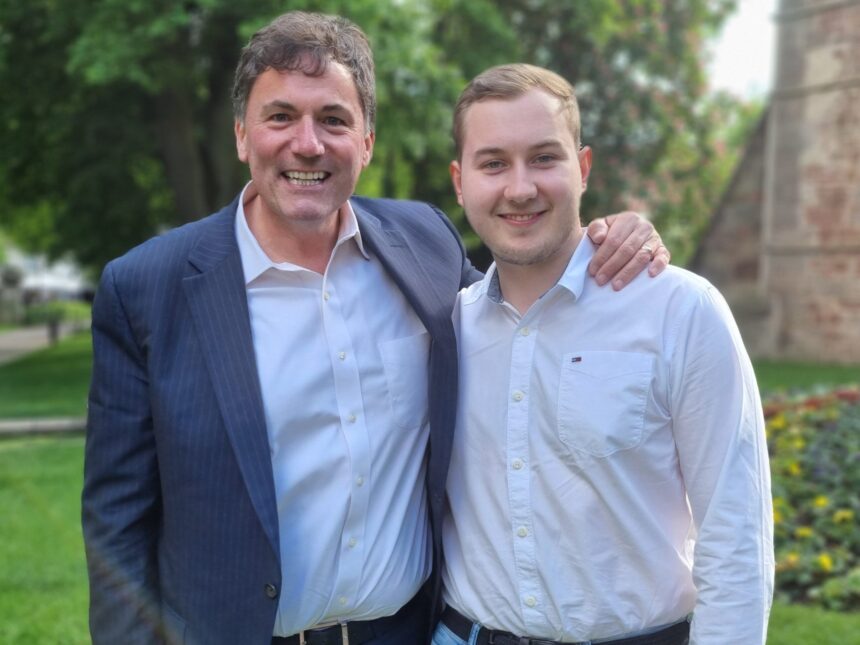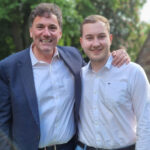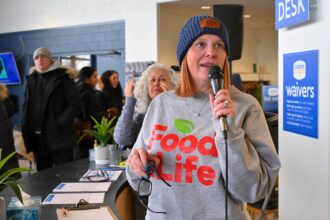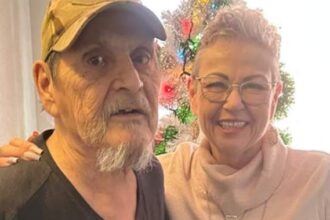In a remarkable testament to medical science and human compassion, Federal Minister Dominic LeBlanc stands before Canadians today because of a stranger’s generosity half a world away. The veteran Liberal politician’s journey from a devastating cancer diagnosis to recovery illustrates both the miracle of modern medicine and the profound impact of global donor registries.
Five years ago, LeBlanc’s life hung in the balance as he battled an aggressive form of blood cancer. Diagnosed with non-Hodgkin lymphoma in 2019, the seasoned parliamentarian faced a grim prognosis that would require more than conventional treatments. His medical team determined that a stem cell transplant represented his best hope for survival—a procedure that depends entirely on finding a compatible donor.
“When you’re told you need a stem cell transplant to survive, it’s like being told you need a miracle,” LeBlanc told CO24 News in an exclusive interview. “You’re essentially waiting for someone you’ve never met to save your life.”
That miracle materialized in the form of Jonathan Kehl, then a 22-year-old economics student from Tübingen, Germany. Kehl had registered as a potential donor years earlier, never imagining his cells would one day cross the Atlantic to save a Canadian cabinet minister.
The transplant procedure, performed at Montreal’s Maisonneuve-Rosemont Hospital in 2019, marked the beginning of LeBlanc’s arduous recovery. The minister endured months of isolation as his immune system rebuilt itself from Kehl’s donated cells—a period he describes as “humbling and perspective-altering.”
Canadian transplant regulations maintain donor anonymity for a minimum of two years following the procedure, meaning LeBlanc spent years wondering about the identity of his lifesaver. When restrictions finally lifted, the minister reached out to Kehl, initiating a correspondence that culminated in an emotional meeting in Ottawa last month.
“Meeting Jonathan was surreal,” LeBlanc explained. “How do you thank someone who literally gave you a second chance at life? There are no words adequate for that kind of gratitude.”
The reunion between donor and recipient highlights the critical importance of international stem cell registries. Canada’s donor database remains significantly smaller than those of comparable nations, with experts estimating that thousands of Canadians annually face challenges similar to LeBlanc’s—needing donors but struggling to find compatible matches.
“Minister LeBlanc’s case demonstrates both the success and the challenges of our transplant systems,” said Dr. Sarah Mahmoud, hematologist and transplant specialist at Toronto General Hospital. “Without international cooperation, his story might have had a very different ending.”
LeBlanc has leveraged his platform as Public Safety Minister to advocate for increased participation in Canada’s stem cell registry. His public appeals have already generated measurable increases in new registrants, particularly among younger Canadians who make ideal donors due to their cell vitality.
“Jonathan was just a university student who took ten minutes to register,” LeBlanc noted. “That ten-minute decision gave me years of life I wouldn’t otherwise have had.”
Health experts emphasize that stem cell donation, while requiring commitment, has evolved to become less invasive than many people realize. Most donations now occur through a process similar to blood donation rather than the more intensive bone marrow extractions of the past.
Jonathan Kehl, now working in finance in Stuttgart, remains modest about his role in this remarkable story. “I did what anyone would do,” he told CO24 World News via video call. “I’m just grateful the process worked and that Minister LeBlanc is healthy.”
As LeBlanc continues his work in Canadian politics, he carries with him not just Kehl’s cells, but a profound appreciation for medical science and human kindness. His experience raises an important question for all Canadians: In a healthcare system increasingly dependent on donor registries, how can we foster a culture where acts of lifesaving generosity like Kehl’s become the norm rather than the exception?
























